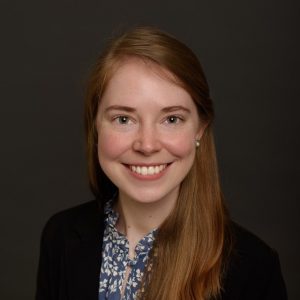Erin McKenzie, MS4, is a current TIP student at the Marquette Family Medicine Residency Program.
by Erin McKenzie, MS4
My dad and I meticulously sifted through the supplies in the small black medical bag he gave me when I was in early grade school. I was so proud to have a first aid kit that looked just like his medical bag! Among the contents were Band-Aids, betadine, gauze, and tools for removing splinters. I wanted to be like him – poking at weird moles, looking at pictures of broken bones, making people feel better when they were sick. As I grew older, I observed him quietly going about his work each day, helping the people of our community. During those years, I realized that becoming a physician would allow me to help those around me. I remember waking up to the landline ringing and then listening to my dad guide a patient through their concerns, or sometimes I would hear the door close quietly as he left for the hospital. I saw the need in the community for resources and healthcare, and how our rural location limited their access. My vision of a doctor was my dad, someone who could help patients lead a healthier life. My father’s devotion to his patients inspired me and my early views were not clouded by the administrative side of healthcare; I simply saw that my father was able to help anyone who reached out to him.
When I was in elementary school, I would follow my dad as he went on nursing home rounds in our small Upper Peninsula community. I remember the joy the elders had when he would bring a young child with him, and the quietness of the nursing home and the conversations I didn’t understand then have remained in my memory. As I grew older, I began to realize that my early views of medicine were through rose-colored glasses. I have seen the challenges that face physicians, from the intricacies of electronic health records to a sometimes-difficult work-life balance. I see the need for people from rural communities who are personally devoted to the local population, who have the opportunity to receive training and who are more likely to stay. I want to know my patients and to be there for them in times of need, to be able to care for the community that nurtured me. Rural medicine is demanding, requiring one to embrace the challenges and treasure the opportunities and gifts of being a Family Physician. I have seen this within myself, since those early days with my little black medical bag.
 The ability to teach is something that has drawn me to Family Medicine. When I was in college, I gave riding lessons on my horses to young students, many of which had never ridden a horse before. I enjoyed discovering better ways to communicate with students, tailoring the lessons to how they learned best. Being able to create a compelling message in a short amount of time is paramount to an effective practice, as our time with patients is limited. During my time on a rural rotation, I remember a patient who presented to the Emergency Department with an elevated blood pressure. Though she was concerned for her health, she told us of her recent loss of her husband, tears in her eyes and clutching the cheap box of tissues close. I wanted to sit with her, to give her a chance to be heard and comforted, but I was whisked away to the next patient. Family Medicine allows one to care for each patient as a whole, complete person; each life is a complex story worthy of understanding. I want to be an ally to patients, to be a teammate in their health and to support them in their lives.
The ability to teach is something that has drawn me to Family Medicine. When I was in college, I gave riding lessons on my horses to young students, many of which had never ridden a horse before. I enjoyed discovering better ways to communicate with students, tailoring the lessons to how they learned best. Being able to create a compelling message in a short amount of time is paramount to an effective practice, as our time with patients is limited. During my time on a rural rotation, I remember a patient who presented to the Emergency Department with an elevated blood pressure. Though she was concerned for her health, she told us of her recent loss of her husband, tears in her eyes and clutching the cheap box of tissues close. I wanted to sit with her, to give her a chance to be heard and comforted, but I was whisked away to the next patient. Family Medicine allows one to care for each patient as a whole, complete person; each life is a complex story worthy of understanding. I want to be an ally to patients, to be a teammate in their health and to support them in their lives.
During my short time downstate, I missed my home: the wilderness of the UP, the ever-changing shoreline of Lake Superior, the miles of fresh ski trails. Even before medical school, I could never imagine myself being anywhere else other than the UP. I have always had a love for primary care, ever since I was young and could be my father’s shadow. The TIP program would allow me to be exactly where I want to be: meeting the patients of the UP, getting to know the faculty and staff of the Marquette Family Medicine Residency, creating a deeper understanding of the patient care at the core of Family Medicine. I would be able to start to build a patient panel and to begin meaningful work that benefits the community. It is important to me that I help create something that can be handed down to TIP scholars that follow, and I have been inspired by the creation of programs that build the connection between healthy choices and lifestyle. Our textbooks often fail to remind us that our patients are more complex than their diseases, and there is more that we can do for them than put Band-Aids on their chronic conditions, even if it is as simple as giving them an ear that will listen. I believe that continuing my training with the Marquette Family Medicine Residency after TIP would prepare me for rural practice, allowing for the development of skills and connections that will benefit the patients for whom I will care. With my parents aging and with my love for snow and the outdoors, I have always wanted to return to the Keweenaw, to be close to family and the community that nurtured me as I grew up. I know in my heart that I want to dedicate my entire career to my home community, and the TIP program can help me become who I am meant to be: a rural Family Physician.



